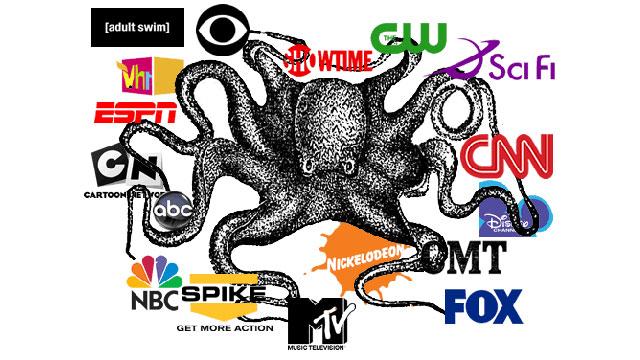
The Federal Communications Commission is pushing a plan to gut its 30-year-old newspaper/broadcast cross-ownership ban. This proposal would allow one company to own a local paper, two TV stations and up to eight radio stations in a single market. Advocates of more media consolidation argue that allowing TV stations and newspapers to merge is critical to cutting costs and saving local journalism.
This is the same argument the Bush FCC used to try to push through the same bad rules in 2007. Back then, the Senate voted the rules down and the courts later threw them out. It’s time to put this argument to bed for good: More media consolidation won’t save journalism.
Banks have toxic assets. Journalism has media consolidation.
When we think about the state of journalism today, let’s not forget that media consolidation is largely what got us into this mess in the first place. Newspapers and TV stations have long been hugely profitable enterprises — and many still are.
Rick Edmonds at Poynter recently highlighted the fact that 2012 was a good year for newspaper stocks. Indeed, the top publicly traded newspaper companies remain quite profitable. In 2011, the McClatchy Company enjoyed 27 percent profit margins, Lee Enterprises had 24 percent profit margins and the Gannett Company’s profits were at 22 percent.
This sounds good, but not that long ago many media companies reported 30 or 40 percent profits. But instead of investing in their product during those flush times — hiring more journalists, diving head-first into the Web — most companies went on a buying spree. The biggest news organizations in the country got over-leveraged with debt as they gobbled up competitors.
Ad revenue eroded as a result of the economic downturn and the media companies’ failure to invest resources online. These companies could have weathered all of this if they weren’t also drowning in debt.
As media companies are bought and sold, as they go bankrupt and get traded by private equity firms, the people who get hurt are journalists and communities. Journalists lose their contracts or their jobs and communities are left with newspapers whose revenues are used only to pay off debt.
More media consolidation will only make the situation worse.
Letting one company own both a newspaper and broadcast stations in the same market isn’t just bad for the community; it’s also bad business. Cross-ownership doesn’t save anything; it simply drags down the performance of both broadcasting and print operations.
Media General was once one of the biggest advocates for gutting the newspaper/broadcast cross-ownership ban, but the company is silent on the issue now. In fact, over the course of 2012 Media General broke up its four cross-owned properties. Similarly, Belo Corp. spun off its broadcasting and newspaper operations. Margins at both then improved, with the newspaper’s profit margin doubling.
The Tribune Company has cross-owned print/broadcast holdings in five cities around the U.S. The company just emerged from the largest bankruptcy in media history and plans to unbundle its cross-owned properties.
The only company actively lobbying the FCC to weaken the cross-ownership rules is Rupert Murdoch’s News Corp., which sent representatives to meetings with the FCC chairman’s office just last month. That may be why the FCC proposal looks like such a plum handout to Murdoch, who wants to buy the L.A. Times and the Chicago Tribune — but can’t unless the agency changes its cross-ownership rules.
Media consolidation leads to less local news.
Here at Free Press, we’re concerned as anyone about the future of journalism. We need a system where communities have access to a full range of news and information, where diverse perspectives are part of the national debate, where journalists make a living wage and are protected enough to hold power to account.
However, relaxing the newspaper/broadcast cross-ownership ban will move us in exactly the wrong direction. While the FCC’s 2007 studies indicated that cross-ownership leads to increased news production at the cross-owned station, that finding was later debunked in peer reviews. It turns out the FCC was counting sports and weather segments in its calculations. Those categories aside, cross-owned stations actually aired less hard news than non-cross-owned stations.
In addition, if you look beyond the one station and take into account the entire region being served by local TV and newspapers, both FCC data and outside studies indicate that cross-ownership leads to less total news produced locally. Cross-ownership crowds out the competition. The presence of a cross-owned station leads other stations in a market to collectively curtail their news output by about 25 percent.
The FCC’s plan to relax the newspaper/broadcast cross-ownership ban will lead to more absentee landlords controlling our nation’s public airwaves, and it will hurt media diversity. The same old media consolidation policies are not a solution for the new challenges (or opportunities) facing journalism today.
3 WAYS TO SHOW YOUR SUPPORT
- Log in to post comments













